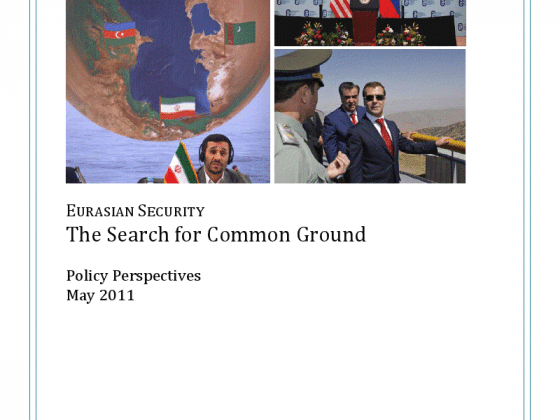Josh Tucker from The Monkey Cage asked me to comment on the Russian helicopters supposedly heading to Syria. Here’s what I wrote:
Yesterday’s statement by Hillary Clinton that Russia is supplying Syria with attack helicopters has stirred up a great deal of controversy, providing more ammunition (so to speak) to US domestic opponents of the Obama administration’s policy of normalization of relations with Russia. This policy has already been damaged by Russian actions against domestic political protests, by serious disagreements over missile defense, and by the two countries’ diametrically opposed positions on the ongoing conflict in Syria. In this post, I want to quickly address the specific question of Russian arms exports to Syria and then turn to the political impact of this most recent contretemps.
I have written before on Russian arms sales to Syria. Most of the recent contracts in this sphere have involved missiles of various kinds, as well as the modernization of tanks and fighter aircraft. According to the Stockholm International Peace Research Institute (SIPRI), Russia has not sold any helicopters to Syria since the Soviet days. Although this is not evident from the SIPRI data, Russian sources indicate that a contract was concluded in 2005 for Russia to modernize Syria’s Soviet-made Mi-17 helicopters. Russian media is speculating that US intelligence confused the return shipment of Syria’s own (newly modernized) helicopters for brand new helicopters that have been sold to Syria.
While I don’t have the information to come down definitively on one side or another of this debate, I would just say that it is generally very difficult for Russian arms exporters to conclude a major contract of this type in complete secrecy. It also takes time to make the helicopters, so any such contract would have had to have been concluded at least a year or two ago, when there would have been no need for secrecy. There is I suppose some possibility that Russia is supplying Syria with helicopters from its own inventory, rather than newly built ones. But that seems relatively unlikely given the relative scarcity of good equipment in the Russian military after years of low procurement. So I would say that the most likely scenario is in fact that these helicopters are in fact modernized Syrian Mi-17s, rather than new ones secretly sold to Syria.
Regardless of the exact provenance of these helicopters, recent events and the rhetoric on both sides show that the conflict is rapidly heading in the direction of a civil war. Moreover, this would be a civil war with echoes of the proxy civil wars of the Cold War days, with Russia potentially arming the Assad regime while Western countries (and their Gulf State allies) arm the rebels. Such wars were fairly ubiquitous in the 1970s and 1980s, but have largely faded from our memory since the end of communism. At the time, both superpowers were able to compartmentalize their relations in such a way as to continue negotiations on critical issues like arms control while fighting these proxy wars and engaging in rhetorical battles over the relative virtues of communism, capitalism, Western democracy and people’s democracy. It may be that leaders on both sides will soon need to relearn those compartmentalization skills so they can continue to cooperate on issues that are important for both sides (Afghanistan, counter-terrorism, counter-piracy, dealing with the rise of China) even as they take opposite sides in a likely civil war in Syria and engage in increasingly heated rhetoric about repression of grassroots protests (or, from the Putin government’s point of view—Western efforts to foment regime change) in Russia.
UPDATE: Actually, the helicopters are modernized Mi-24s. Not sure whether the Russian media reports were mistaken and the mid-2000s modernization contract was for Mi-24s rather than Mi-17s or if there were two separate contracts.
Dmitry Gorenburg is a Senior Analyst at CNA blogging for PONARS Eurasia on military and security affairs in Russia and Eurasia. This comment is also available on Russian Military Reform.









